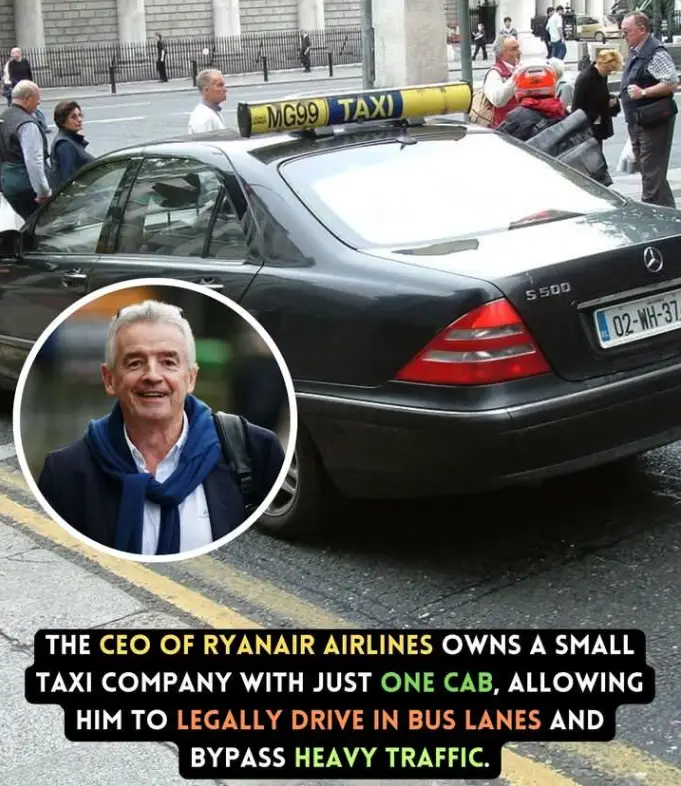Michael O’Leary, the dynamic CEO of Ryanair, is renowned for his unconventional strategies and cost-cutting measures that have revolutionized the airline industry. Beyond the boardroom, O’Leary’s innovative thinking extends to his personal life, exemplified by a clever tactic he employed to navigate Dublin’s notorious traffic congestion.
The Traffic Challenge
Dublin, like many bustling capitals, grapples with significant traffic congestion, particularly during peak hours. Commuters often find themselves ensnared in prolonged delays, leading to frustration and lost productivity. For a high-profile executive like O’Leary, whose time is exceedingly valuable, these delays posed a considerable inconvenience.
The Taxi Registration Maneuver
In 2004, seeking a solution to this persistent problem, O’Leary devised an ingenious plan: he registered his personal Mercedes-Benz S-Class as a taxi under the name “O’Leary Cabs.” This strategic move wasn’t intended to operate a commercial taxi service but to exploit a legal provision allowing taxis to utilize Dublin’s bus lanes. By doing so, O’Leary could circumvent regular traffic and expedite his commutes across the city.
Wikipedia, the free encyclopedia
Implementation and Operation
To comply with regulations, O’Leary ensured that his vehicle met all the necessary requirements for taxi operation. This included obtaining a Public Service Vehicle (PSV) license and adhering to the standards set for commercial taxis. Reports suggest that he employed a licensed driver to operate the vehicle, further aligning with legal stipulations. This arrangement allowed him to legally access bus lanes, significantly reducing travel time during his daily commutes.
Wikipedia, the free encyclopedia
Public and Regulatory Response
O’Leary’s tactic did not go unnoticed. The public and media offered mixed reactions, with some lauding his resourcefulness and others criticizing the exploitation of a system designed to benefit public transportation. The Irish transport minister at the time expressed concern over such practices, suggesting that while legal, they might undermine the intended purpose of bus lanes. Despite the controversy, O’Leary maintained that his actions were within legal boundaries and highlighted inefficiencies in the existing traffic management system.
Wikipedia, the free encyclopedia
Reflection of Business Philosophy
This episode mirrors O’Leary’s broader business philosophy at Ryanair, where he is known for identifying and leveraging loopholes to gain competitive advantages. Whether it’s negotiating airport fees or implementing cost-saving measures, O’Leary consistently seeks innovative solutions to enhance efficiency and profitability. His personal approach to Dublin’s traffic exemplifies this mindset, demonstrating a seamless blend of personal initiative and professional acumen.
Legacy and Impact
While O’Leary’s taxi registration strategy was eventually curtailed due to regulatory changes, it remains a notable example of creative problem-solving. It sparked discussions about urban traffic policies and the importance of ensuring that systems designed to improve public welfare are resilient against exploitation. For O’Leary, it reinforced his reputation as a maverick willing to challenge norms and think outside the box, both in business and personal endeavors.
Conclusion
Michael O’Leary’s decision to register his personal vehicle as a taxi to navigate Dublin’s traffic more efficiently showcases his characteristic blend of ingenuity and audacity. This anecdote not only highlights the challenges of urban congestion but also serves as a testament to how unconventional thinking can lead to effective, albeit controversial, solutions. O’Leary’s approach encourages a reevaluation of existing systems and inspires innovative strategies to overcome everyday obstacles.

